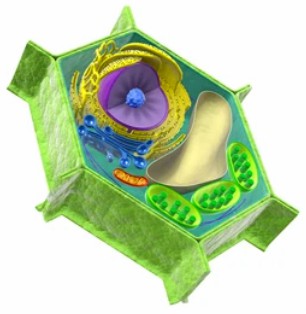Plant cell detection is a process of detecting and analyzing changes in plant cells through scientific and technical means. This process usually involves using plant physiology, molecular biology, biochemistry, and other methods to analyze and study important components and cell structure changes in plant cells. Plant cell detection has practical application significance for analyzing disease resistance, increasing crop yield, and improving plant quality. Through an in-depth study of changes in plant cell components, cell structure, and cell state, we can provide a scientific basis for the agricultural field, help improve plant varieties, enhance their resistance to diseases and insect pests, and improve farmland production efficiency.
Lifeasible is committed to plant research, with a professional testing technology development team, experienced testing and quality control teams, comprehensive and advanced experimental equipment, standard management systems, and strictly operated quality control systems, providing scientific experimental technology and Professional solutions dedicated to delivering accurate and reliable test results. Our scientific research services play an essential role in helping researchers promote the progress of plant scientific research.

Based on advanced technology platforms and professional technical teams, we are committed to measuring various components and cell status in plant cells, including but not limited to the activities of different important antioxidant enzymes and cell viability in plant cells. Comprehensive plant cell testing services, including programmed cell death, cell necrosis, cell membrane fluidity, etc. In plant cell testing, we have built a comprehensive testing technology platform. In addition to conventional cell staining, ultraviolet photometric analysis, microscopy testing, etc., we also use various molecular biology and biochemical methods to help researchers analyze plants more comprehensively. Cell status and changes in important components in plant cells under different environmental conditions or external stimuli. For example, in the detection of MDA in plant cells, by detecting changes in MDA, we can understand the degree of membrane lipid peroxidation and indirectly measure the degree of damage to the membrane system and the stress resistance of the plant. By detecting changes in the fluidity of plant cell membranes, we can understand the changes that occur when plant cells respond to stress.

Lifeasible is committed to providing customers with diversified, comprehensive services in plant cell testing. We closely follow the hot spots of plant scientific research and have long focused on close learning, exchanges, and cooperation with the R&D teams of major universities, large research institutes, and advanced enterprises. In addition to meeting the basic testing needs of users, we also develop and verify detection methods for measuring factors that are hot research topics in plant cell biology and samples with complex matrix backgrounds, and we are actively exploring personalized and leading detection methods in the long term. Technologies and solutions, etc. If you are interested in us, please feel free to contact us.